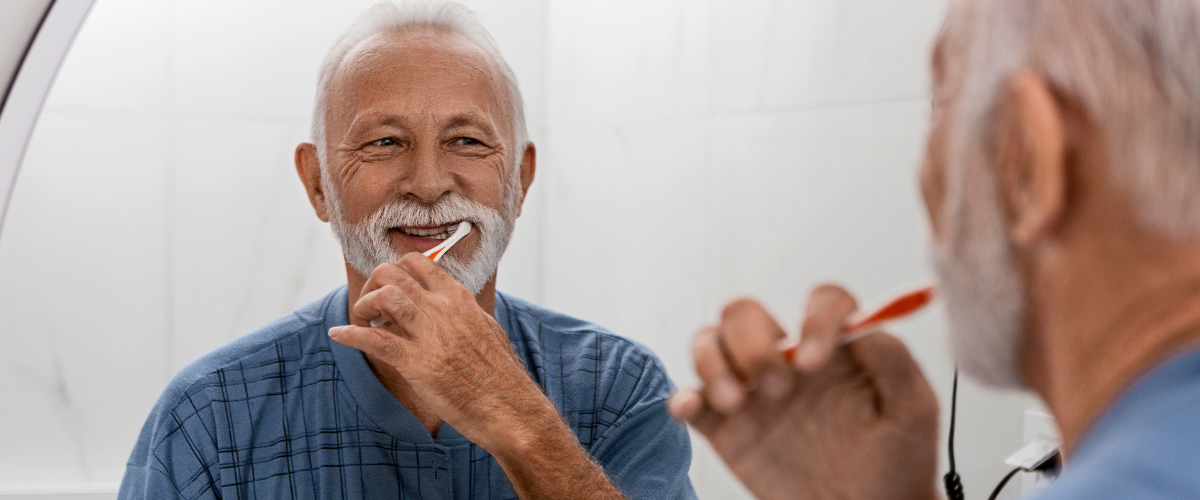As we age, it becomes increasingly important to take care of our personal hygiene. Good hygiene can help prevent the spread of germs, reduce the risk of infection, and promote overall health and well-being.
For seniors, maintaining good hygiene can be especially challenging due to physical limitations, mobility issues, and other health conditions. In this article, we will explore some hygiene tips for seniors to help them stay clean, healthy, and comfortable.
Table of Contents
ToggleWhy Hygiene is Important for Seniors?
As we age, our bodies become more vulnerable to infections and diseases. Poor hygiene can increase the risk of infections such as urinary tract infections, pneumonia, and skin infections. In addition, seniors may be more susceptible to infections due to weakened immune systems. Good hygiene can also help seniors feel more comfortable, confident, and socially engaged.
Hygiene Tips for Seniors
Here are some tips to help seniors maintain good hygiene:
1. Bathing and showering:
- Bathe or shower at least once a week, or more often if necessary.
- Use warm water and mild soap to wash the body, paying special attention to areas prone to sweat and odor.
- Use a long-handled brush or sponge to reach difficult areas.
- Use a non-slip mat in the shower or bathtub to prevent falls.
- If standing for long periods of time is difficult, consider using a shower chair or bench.
2. Oral hygiene:
- Brush teeth at least twice a day with fluoride toothpaste.
- Use dental floss or interdental brushes to clean between teeth.
- Visit the dentist regularly for checkups and cleanings.
- If dentures are worn, clean them daily and soak them overnight in a denture cleaner.
3. Hand hygiene:
- Wash hands frequently with soap and warm water, especially before eating and after using the bathroom.
- Use hand sanitizer if soap and water are not available.
- Avoid touching the face, mouth, and nose with unwashed hands.
4. Hair and scalp care:
- Wash hair regularly with a mild shampoo.
- Use a conditioner to keep hair soft and manageable.
- Brush or comb hair regularly to prevent tangles.
- Consider using a hair dryer or air-dry hair to prevent scalp irritation.
5. Foot Care:
- Wash feet regularly with soap and warm water.
- Dry feet thoroughly, especially between toes.
- Trim toenails straight across to prevent ingrown nails.
- Wear comfortable, well-fitting shoes with good support.
6. Incontinence care:
- If incontinence is an issue, change adult diapers or pads frequently.
- Use barrier creams or ointments to prevent skin irritation.
- Wash hands thoroughly after changing soiled diapers or pads.
7. Clothing and laundry:
- Wear clean clothes every day.
- Wash clothes and linens regularly with detergent and hot water.
- Use fabric softener to keep clothes soft and fresh.
- If laundry is difficult, consider using a laundry service.
Conclusion:
Maintaining good hygiene is essential for seniors to stay healthy, comfortable, and socially engaged. By following these hygiene tips for seniors, you can reduce the risk of infections, promote overall health and well-being, and enjoy a better quality of life.
Want to learn more?
ConsidraCare’s caregivers for seniors are trained to offer professional support and companionship to seniors. Please reach out to us at wecare@considracare.com or call us at 1-855-410-7971.
FAQs:
Why is hygiene important in seniors?
Good hygiene practices are essential for seniors as they age. As the immune system weakens and skin becomes more prone to dryness and irritation, proper hygiene can help prevent infections and maintain skin health. Additionally, regular dental care and odor control can improve overall well-being and self-esteem.
What are personal care needs of the elderly?
The personal care needs of the elderly can include assistance with bathing, grooming, and dressing. They may also require help with toileting and managing incontinence. Additionally, some seniors may need help with mobility and getting in and out of bed or chairs.
What are hygiene problems in the elderly?
As people age, they may face various hygiene problems due to physical limitations or health conditions. These issues can range from difficulties with bathing, grooming, and using the toilet to problems with incontinence and dental care. Poor hygiene can lead to infections, skin irritations, and other health problems, making it crucial for caregivers and family members to address and help manage these issues for the elderly. Regular check-ups and appointments with healthcare professionals can also aid in identifying and addressing any potential hygiene problems.
What are four important personal hygiene habits?
Personal hygiene habits are crucial for maintaining good health and preventing the spread of germs and infections. Four important personal hygiene habits are:
1. Regular hand washing with soap and water or using hand sanitizer
2. Showering or bathing daily to keep the body clean and prevent body odor
3. Brushing and flossing teeth daily to maintain oral hygiene and prevent dental problems
4. Wearing clean clothes and changing them regularly to avoid the accumulation of germs and bacteria.
How do you maintain hygiene in the elderly?
Maintaining hygiene in the elderly can be challenging due to physical limitations or health conditions. However, there are several ways to help them maintain good hygiene, such as assisting with bathing and grooming, providing incontinence care, and ensuring that their living environment is clean and tidy. Caregivers and family members can also encourage the elderly to practice good personal hygiene habits to help maintain their health and well-being.
Maryam is a leading writer at ConsidraCare, specializing in senior care. Her well-researched articles are widely recognized for guiding families through the complexities of caring for loved ones, establishing her as a trusted and authoritative voice in the field.


